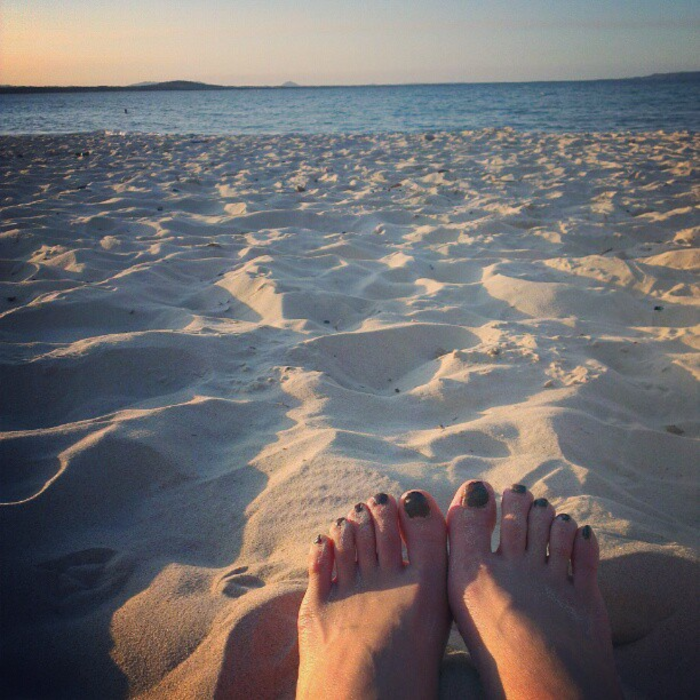As a four-day work week is trialled in countries across the globe, health researchers at the University of South Australia say they’re ‘all in’ when it comes to a long weekend, especially as new empirical research shows that the extra time off is good for our health.

Credit: CC by 2.0 Littleyiye
As a four-day work week is trialled in countries across the globe, health researchers at the University of South Australia say they’re ‘all in’ when it comes to a long weekend, especially as new empirical research shows that the extra time off is good for our health.
Assessing changes in daily movements before, during and after holidays, researchers found that people displayed more active, healthy behaviours when they were on holiday, even when they only had a three-day break.
Across the 13-month study period, people generally took an average two to three holidays, each being around 12 days. The most common holiday type was ‘outdoor recreation’ (35 per cent), followed by ‘family/social events’ (31 per cent), ‘rest and relaxation’ (17 per cent) and ‘non-leisure pursuits’ such as caring for others or home renovations (17 per cent).
Specifically, it showed that on holiday people:
- engaged in 13 per cent more moderate-to-vigorous physical activity (MVPA) each day (or five min/day more)
- were five per cent less sedentary each day (or 29 min/day less)
- slept four per cent more each day (or 21 min/day more).
UniSA researcher Dr Ty Ferguson says that the research indicates that people display healthier behaviours when they are on holiday.
“When people go on holiday, they’re changing their everyday responsibilities because they’re not locked down to their normal schedule,” Dr Ferguson says.
“In this study, we found that movement patterns changed for the better when on holiday, with increased physical activity and decreased sedentary behaviour observed across the board.
“We also found that people gained an extra 21 minutes of sleep each day they were on holiday, which can have a range of positive effects on our physical and mental health. For example, getting enough sleep can help improve our mood, cognitive function, and productivity. It can also help lower our risk of developing a range of health conditions, such as obesity, diabetes, cardiovascular disease, and depression.
“Interestingly, the size of these changes increased in line with the length of the holiday – so the longer the holiday, the better the health benefits.”
The study used data from the Annual rhythms in adults’ lifestyle and health (ARIA) study where 308 adults (mean age 40.4 years) wore fitness trackers 24 hours a day for 13 months. Minute-by-minute
movement behaviour data were aggregated into daily totals to compare movement behaviours pre-holiday, during holiday and post-holiday.
Senior researcher UniSA’s Prof Carol Maher says that the study offers support for the growing movement for a four-day week.
“A shorter working week is being trialled by companies all over the world. Not surprisingly, employees reported less stress, burnout, fatigue, as well as better mental health and improved work-life balance,” Prof Maher says.
“This study provides empirical evidence that people have healthier lifestyle patterns when they have a short break, such as a three-day weekend. This increase in physical activity and sleep is expected to have positive effects on both mental and physical health, contributing to the benefits observed with a four-day work week.
“Importantly, our study also showed that even after a short holiday, people’s increased sleep remained elevated for two weeks, showing that the health benefits of a three-day break can have lasting effects beyond the holiday itself.
“As the world adapts to a new normal, perhaps it’s time to embrace the long weekend as a way to boost our physical and mental health.”
…………………………………………………………………………………………………………………………
Contact for interview: Dr Ty Ferguson E: [email protected]
Media contact: Annabel Mansfield M: +61 479 182 489 E: [email protected]
Journal
International Journal of Behavioral Nutrition and Physical Activity
DOI
10.1186/s12966-023-01416-2
Method of Research
Case study
Subject of Research
People
Article Title
How do 24-h movement behaviours change during and after vacation? A cohort study
Article Publication Date
1-Mar-2023
COI Statement
The authors report no conflict of interest.




